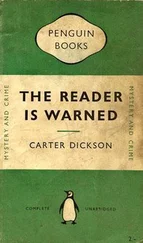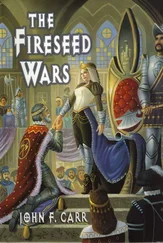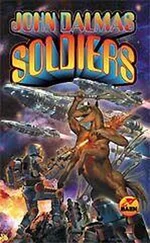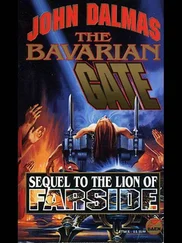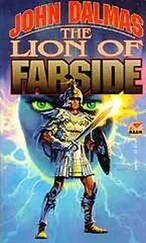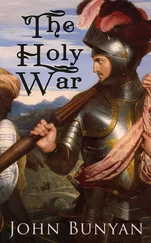John Dalmas - The Kalifs War
Здесь есть возможность читать онлайн «John Dalmas - The Kalifs War» весь текст электронной книги совершенно бесплатно (целиком полную версию без сокращений). В некоторых случаях можно слушать аудио, скачать через торрент в формате fb2 и присутствует краткое содержание. Жанр: Фэнтези, на английском языке. Описание произведения, (предисловие) а так же отзывы посетителей доступны на портале библиотеки ЛибКат.
- Название:The Kalifs War
- Автор:
- Жанр:
- Год:неизвестен
- ISBN:нет данных
- Рейтинг книги:5 / 5. Голосов: 1
-
Избранное:Добавить в избранное
- Отзывы:
-
Ваша оценка:
- 100
- 1
- 2
- 3
- 4
- 5
The Kalifs War: краткое содержание, описание и аннотация
Предлагаем к чтению аннотацию, описание, краткое содержание или предисловие (зависит от того, что написал сам автор книги «The Kalifs War»). Если вы не нашли необходимую информацию о книге — напишите в комментариях, мы постараемся отыскать её.
The Kalifs War — читать онлайн бесплатно полную книгу (весь текст) целиком
Ниже представлен текст книги, разбитый по страницам. Система сохранения места последней прочитанной страницы, позволяет с удобством читать онлайн бесплатно книгу «The Kalifs War», без необходимости каждый раз заново искать на чём Вы остановились. Поставьте закладку, и сможете в любой момент перейти на страницу, на которой закончили чтение.
Интервал:
Закладка:
A pastoral army could be recruited and trained; the Elder had no doubt of it. Could and would be. And payment for it was not dependent on the Diet; it would come from ecclesiastical assessments collected by the Prelacy.
When he got back to his desk, Dosu began at once to draft a directive to the offices involved.
The Kalif felt a bit guilty. He had not been entirely honest with Elder Dosu. Not that he wanted to mislead or trick him. In fact, it seemed to him that Dosu would agree with his real intention at least as much as with the one he'd given. But secrecy was vital. He wouldn't even tell Jilsomo till the day of departure, or close to it. For now it was enough that SUMBAA knew, and Tain.
Sixty-three
On the second day of the Diet of 4725, the Kalif formally requested an invasion appropriation. It was not seriously resisted. The House felt pressure by the lesser nobility and also by the gentry. Further, no Kalif in modern times had been so popular with the people, and his provision for sending a pastoral army to convert the heathen made it easier-less embarrassing-for the noble delegates to give in. But the decisive factor was the officers' corps of the armed forces.
The General Staff had more misgivings about the Kalif's invasion budget than the Diet did. It seemed to them that a somewhat larger army and battle fleet could and should be built and sent, even at the cost of an additional year. Furthermore, in light of the combat experience on Terfreya, the emphasis on infantry seemed ill-advised to them; they wanted much more armor. They'd laid out their objections in a formal brief, with a proposed alternative, but the Kalif had made only small adjustments.
They backed away from a confrontation, though. The differences were a matter of degree, and the Kalif had already retired General Bavaralaama with minimal ceremony, for only mildly derogatory remarks made to staff officers at a meeting. This stiff action demonstrated the Kalif's growing power and confidence, fixing it in the command mind. Then he'd replaced Bavaralaama on the General Staff with Chesty Vrislakavaro, now a lieutenant general, a man very popular with the officer corps.
Vrislakavaro had previously replaced Songhidalarsa in command of 1st Corps. The formidable Iron Jaw resided in a high-security military prison in the Belt. His personal fortune, and a substantial part of his family's, had been eaten up by reconstruction, reparations to the families of casualties, and medical and pension funds for the disabled, including peasants.
The address in which the Kalif presented his formal appropriation request mentioned immigrant fleets, fleets for which he did not request an appropriation. These were to be built by the various planetary governments after the invasion fleet left. Some delegates to the House pointed out that to begin building immigrant fleets assumed that the invasion succeeded-that there were conquered worlds to migrate to. But suppose the invasion failed, that no planets were conquered? The money would have been wasted.
Suppose the invasion failed! Simply bringing up the possibility publicly caused a wave of misgivings about the entire invasion project, a wave that spread across the empire. But it was brief. The decisive argument was: "Better fight them there, with an advantage in arms, than here at a time of their choosing."
The after-effect was a lessening of euphoric optimism and an increase in determination.
Within months, on every world including Maolaari, there were camps busy training soldiers, marines, airmen, ships' crews. And schools training pastors-twice the 20,000 originally intended. Factories, and especially shipyards, were busy around the clock; work went on at a pace never seen before in the empire. Preparations took on a virtually unstoppable momentum. As often happens, abundant activity with results that could be seen-floater parks filling with new aircraft, starships taking shape in the yards, recruits becoming skilled and toughened, their units coordinated-gave rise to a new optimism, and a social order beyond any that had come before.
Favorable economic effects were not as great as had been hoped for, and there was considerable currency inflation. But still, the lot of the people was materially better. And promised to continue being better after the armada left; construction of the immigrant fleets would see to that. These would begin with ships built to transport would-be brides, an immigration to begin as soon as word came that the army had procured a world or worlds to settle on.
The only real disorders were a flurry of wildcat strikes by gentry work supervisors and skilled gentry workmen, who wanted gentry delegates seated in the Diet. These work stoppages threatened to seriously hamper the invasion preparations, but they faded when the Kalif promised that the question would be discussed in public forums, something that had never happened before.
The empire would never be the same.
The Kalif asked Lord Roonoa not to bring up the legalization of loohio; he'd propose it himself, he said. And in mid-session he did. Conservative elements of the House, seeing an opportunity to assert themselves safely, resisted. Finally, with only two days left before the required vote, the Kalif amended the proposal: Any world would be free to reject the import of loohio on a vote by its own Diet. Elder Dosu objected strongly, arguing that it wasn't a matter of commerce or economics or political policy, but of religion-a command of The Prophet. Lord Roonoa and others, including delegates of several planets with critical population problems, answered with hard statistics. Alb Jilsomo pointed out that the Pastorate could always exhort its parishioners not to eat the fish.
The vote was twenty-four to twenty-one in favor of the proposal as amended, to go into effect in 4727. This date gave the Diets of the individual sultanates an opportunity to reject for their worlds before exportation began.
The restaffed College of Exarchs had moved back into the Sreegana by the end of 4725. The Kalif and kalifa were in the rebuilt palace three months later.
Ten days before the session closed, the Kalif proclaimed the Pastorate a voting estate, with seven votes in the Diet. The House vote to block it was fifteen to twelve, one vote short of the required sixty percent. They would have another chance to block it at the beginning of the Diet of 4726.
The Diet of 4726 specifically agreed to permit the Assembly of Elders a minimum of seven votes in the Diet, if the Kalif would agree to a convention to further amend the Charter of Establishment. The favorable vote upset severely the Land Rights delegates and some others. It resulted from behind-the-scenes bargaining with noble delegates from the outer worlds, who wanted an additional delegate to the House for each sultanate.
The Kalif agreed, on condition that he chair the agenda committee-and that the agenda must consider a proportionate increase in the College of Exarchs, and also an Assembly of Gentry with at least a voice in matters. And further, that the convention take place immediately following the Diet of 4726, while the delegates were still on Varatos.
The Kalif's actual reason for the timing, he kept to himself.
Sixty-four
Year of The Prophet 4727
In Chithkar-Sevenmonth-of 4727, the fleet began to assemble in the Ranj System, close outside the orbit of Varatos. By the time the Diet convened, the assessed warships from the various planets all were there. Their transports were just beginning to arrive, their troops in stasis. A number of the imperial warships were there also, though others still were at bases on the surface. The Vartosu transports would lift last, with the flagship.
It was already the greatest concentration of military might in that sector of the galaxy since its devastation so many lost millennia before. And somehow, Chodrisei Biilathkamoro was not enthused with it. He felt a sort of chronic disease, as if something was wrong, something he only vaguely sensed and couldn't identify. Sometimes he'd wondered if it was the spirit of Kargh, telling him he shouldn't be doing this.
Читать дальшеИнтервал:
Закладка:
Похожие книги на «The Kalifs War»
Представляем Вашему вниманию похожие книги на «The Kalifs War» списком для выбора. Мы отобрали схожую по названию и смыслу литературу в надежде предоставить читателям больше вариантов отыскать новые, интересные, ещё непрочитанные произведения.
Обсуждение, отзывы о книге «The Kalifs War» и просто собственные мнения читателей. Оставьте ваши комментарии, напишите, что Вы думаете о произведении, его смысле или главных героях. Укажите что конкретно понравилось, а что нет, и почему Вы так считаете.

